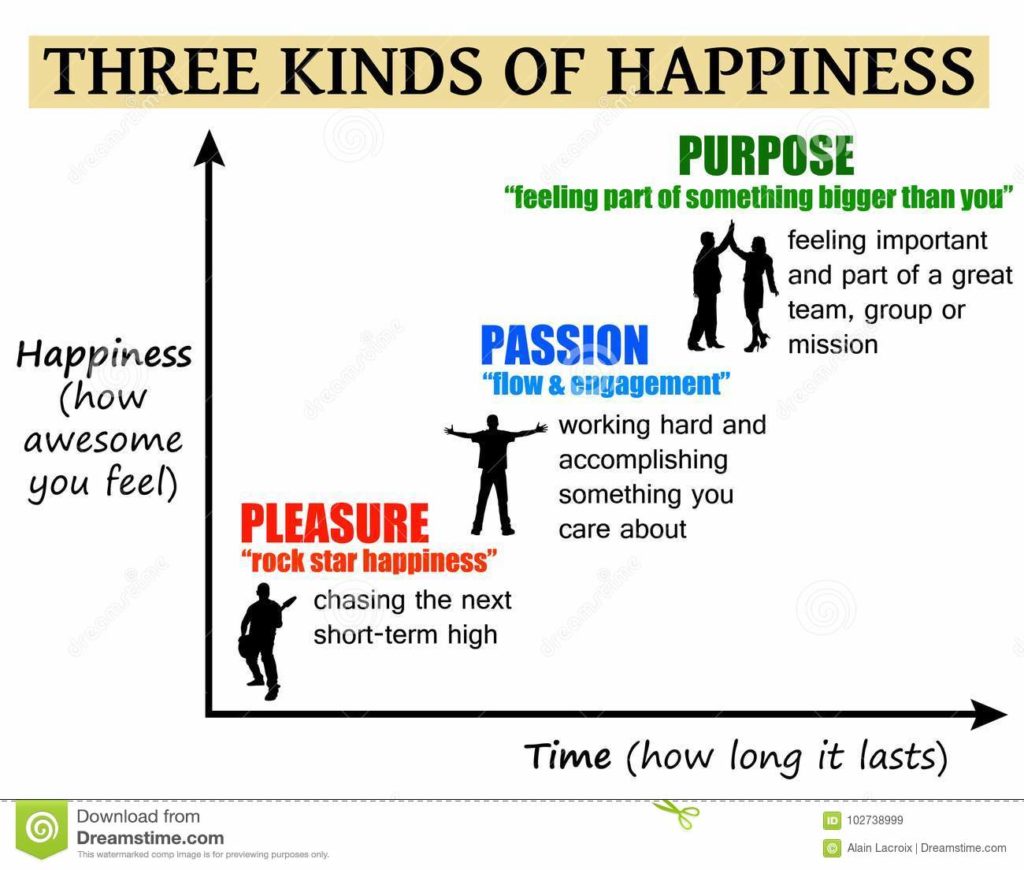Doing activities that give us pleasure and purpose can increase our happiness, in fact, purpose and pleasure were identified as two fundamental ingredients of happiness.
First, we must answer an important question: what is happiness?Feeling happy depends in large part on what we do and think. You can’t be happy without appreciating what you’re doing. You can’t be happy thinking in negative terms either.
“There is only happiness where there is virtue and serious effort, because life is not a game. “
When you’re happy, life goes well. But what exactly is happiness?This is important because the different ways we define happiness affect what we can do to improve it. Professor Paul Dolan thinks he has the answer to that question.
Paul Dolan, internationally recognized as an expert in happiness, behavior and public policy, is a professor of behavioral science at the London School of Economics and Political Science and was a visiting professor at Princeton University on professor Daniel Kahneman’s team.
According to this author, happiness is the set of experiences of pleasure and purpose over time, life goes well when you feel happy, according to the philosopher Jeremy Bentham, pleasure is the only good thing and pain the only bad. some experts prefer terms such as “pleasure” and “suffering. “
In general, each of us can be categorized according to the preponderance of different types of sensations. Happy people have more positive than negative feelings. Using Bentham’s language, they usually experience pleasure and little pain.
Thus, the more frequent and intense your different sensations of pleasure are, the happier you will be; however, there are other sensations that are important beyond the categories of pleasure and pain: purpose and lack of meaning.
Pleasure and purpose can be understood as abbreviations for a wide range of positive and negative feelings; These sensations would be those of fullness, meaning and usefulness, on the one hand, and boredom and futility, on the other.
If we think about work or studies, we realize that these activities sometimes give the impression that they have a lot of meaning or purpose, sometimes they don’t. Well, these good, bad feelings are just as important as those of pleasure and pain.
Writing a book is a great example of doing something that seems to make sense, a purpose, having a beer with friends gives you a sense of pleasure, they are different sensations, but they give us happiness.
So, to be really happy, you have to experience both fun and purpose. You can be as happy or sad as others, but with very different combinations of purpose and fun. The fact is, we must feel both pleasure and purpose. is what Paul Dolan calls the principle of pleasure and purpose.
This principle explains the human motivation to seek pleasure and purpose and avoid pain and lack of meaning, but it also helps explain why certain emotions, usually negative, can sometimes be positive if they have a goal.
Anger, for example, has the function of containing selfishness and stimulating cooperative behavior, so we don’t always want to feel good feelings, life can be cruel, like people, so sometimes anger is justified, but we are also unnecessarily angry. Of course, this happens when we are stressed by small inconveniences, for example.
Day after day, moment after moment, you experience feelings of pleasure, purpose, pain and lack of meaning. You’re happier when you feel a higher proportion of positive feelings and when you feel them longer.
Thus, happiness finally has to do with the principle of pleasure and purpose in time. Time is a scarce resource. Interestingly, few researchers consider happiness based on the use of time.
In the long run, we must try to take advantage of the hours and minutes to obtain maximum pleasure and general use for as long as possible, we cannot recover lost time or lost happiness.
Staying in a boring job or maintaining an unsatisfactory relationship only prolongs discomfort and any future happiness is unlikely to fully compensate for this loss. Lost happiness has been lost forever.
The fundamental reason why most of us are not as happy as we could be is that our way of attributing attention is often related to the idea of living as many pleasures and goals as possible. we allow the evaluative self to satisfy false desires about what should motivate us and make us happy.
Then you know that. If you want to be happier, you must carry out activities that give you pleasure and purpose in life. But don’t forget that it’s important that these activities last in time. This way you can maximize your happiness.

